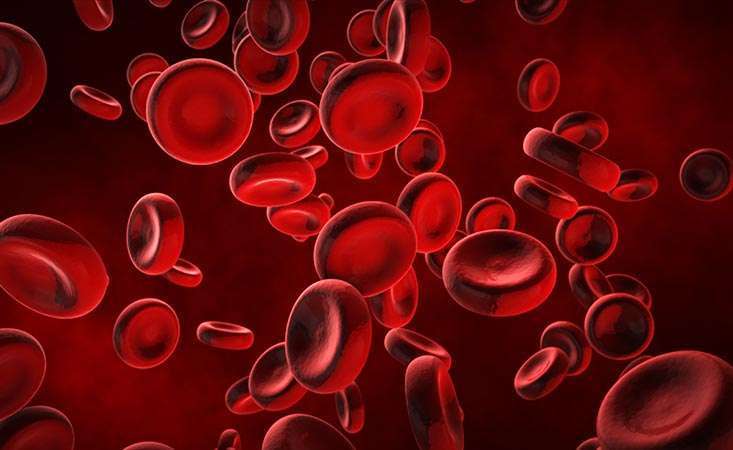
It’s important for pancreatic cancer patients to maintain healthy red blood cell counts.
Editor’s note: This week’s Friday Fix focuses on anemia, a condition when your red blood cell count is too low.
When you get your blood drawn at a doctor’s office or lab, you often receive complete blood count, or CBC, results. CBC tests check for several levels within your body that can indicate when something isn’t right.
For example, high white blood cell counts can signify that your body is fighting off an infection. When levels are too low, they could indicate a weakened or compromised immune system. Chemotherapy and other cancer treatments can impact pancreatic cancer patients’ white blood counts.
CBC tests also provide information about your red blood cells, which function to carry oxygen throughout your body.
When red blood cell counts drop too low, it causes a condition called anemia.
Chronic diseases like pancreatic cancer, or inflammation like pancreatitis, can cause anemia. And chemotherapy or radiation therapy can also cause or worsen anemia.
If you or a loved one is experiencing new or worsening fatigue or muscle weakness, these could be symptoms of anemia. Contact your healthcare team to determine if bloodwork and other testing might be necessary.
“Patients who experience anemia due to pancreatic cancer or its treatment may require a blood transfusion, depending upon its severity,” said Jeannine Mills, MS, RD, CSO, LD, a clinical oncology dietitian at the Norris Cotton Cancer Center at Dartmouth Hitchcock Medical Center and member of the Pancreatic Cancer Action Network’s (PanCAN) Scientific & Medical Advisory Board.
Another kind of anemia is caused by low iron levels.
“Iron-deficiency anemia may be a result of blood loss or even an inability to absorb iron, known as malabsorption, following surgery,” Mills said. “Iron is used by the body to make hemoglobin, which then carries oxygen from the lungs to other parts of the body via red blood cells. Iron is also used to make myoglobin, which provides oxygen to muscles.
“Iron is needed for growth and development as well as to make some hormones.”
When patients experience iron-deficiency anemia, they may need oral or intravenous (IV) iron supplementation to restore healthy levels. Foods high in iron can help, too.
“Some seafood, like shellfish and anchovies, are a good source of iron,” Mills said. “Red meat and poultry are rich in iron, too. Some plant-based iron-rich foods include greens, like spinach, and beans, like lentils – but plant-based sources may not be as well absorbed as ‘heme’ sources of iron like meat or poultry.”
She added, “Try to include a source of vitamin C when consuming any food containing iron to improve absorption.”
If your iron levels are low enough to necessitate supplementation with oral pills or IV iron, your healthcare team will monitor you to determine how much iron you need to be given, and for how long.
“It is important to talk with your care team before you elect to take iron supplements of any kind,” Mills noted.
















